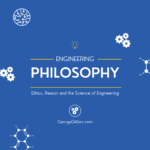New Peer Review Process: Craft Advanced Tech

Engineering Philosophy – Metaphysics and Epistemology
New Peer Review Process – Craft Advanced Tech:
Engineering Processes – Simplifying Complexity
Introduction: Peer Review as Part of Engineering Processes – Simplifying Complexity
In the realm of corporate processes, numerous activities span from pre-project initiation to post-project completion. Among these, the Engineering Peer Review stands out as a critical sequence of team evaluations focusing on technical content and its implementation. This comprehensive review process extends from Research and Development (R&D) through to post-launch, ensuring the product’s success in the market.
The purpose of this article is to define the role and methodology of Peer Review as an objective tool designed to manage the implementation of high-tech complexities.
General References
Peer Review refers to the evaluation of work by one or more people with similar competencies to the producers of the work. It is a process of examining the existing body of knowledge to identify inconsistencies and resolve potential misalignments within specific environments.
As a general reference, consider the process developed by Milton Friedman during his tenure at the Chicago School of Economics. Consequently, participants were assigned to audit a subject paper and provide feedback based on their individual perspectives. Therefore, during the meeting, these opinions were compared and discussed with a subject matter experts present. Furthermore, this active, open debate significantly enhanced the value of the given topic. Moreover, at a minimum, participants gained a full understanding of the presenter’s point of view, while also having the opportunity to express their own opinions. Overall, this process enriched all participants, regardless of agreement.
For more detailed information on Peer Review, see references below.
https://en.wikipedia.org/wiki/Peer_review
https://en.wikipedia.org/wiki/Milton_Friedman
Applied Philosophy
The rigorous process of examining a presented concept with the goal of implementing it in a specific application intersects with Objectivist Metaphysics and Epistemology. In this context:
- Metaphysics refers to the body of knowledge presented for the Peer Review, including the proposal for the technology intended for a specific function
- Epistemology involves the proof of why the technology will work for the given application, including an initial high-level design failure modes analysis and other available knowledge
Sequentially, adopting this approach in Systems Engineering is valuable for developing complex functional assemblies. In addition, Peer Review serves as an essential tool, ensuring that both the theoretical foundations and practical applications of the technology are thoroughly vetted and validated.
Technical Peer Review – Definition
Wikipedia defines Engineering Peer Review as follows:
“In engineering, technical peer review is a well-defined review process for finding and correcting defects conducted by a team of peers with assigned roles. Technical peer reviews are carried out by peers representing areas of the lifecycle affected by the material being reviewed (usually limited to 6 or fewer people). Technical peer reviews are held within development phases, between milestone reviews, on completed products, or on completed portions of products. A technical peer review may also be called an engineering peer review, a product peer review, a peer review/inspection, or an inspection.”
Adopting to Systems Engineering Method
Primary Definition of Peer Review: Peer Review is the process of investigating a presented concept, particularly for high-level vehicle features to be implemented within a given vehicle architecture, facilitated by key stakeholders.
Consequently, Purpose of Peer Review: The purpose of Peer Review is to achieve consensus on the alignment and integration of executive systems, supported by key stakeholders. This process begins early in development to establish requirements and examine potential failure modes, aiming to identify and address “defects” or inconsistencies before they arise.
Key Stakeholders – Definition
Therefore, the key stakeholders in the Peer Review process include:
- Firstly, Responsible technical experts of the subject matter (author/presenter/team)
- Secondly, Responsible technical experts from interfacing executive systems and subsystems
- Including, Vehicle architecture and Feature owners
- In addition, Functional leaders
- Other representatives (e.g., assembly, service, human-vehicle interfaces)
The goal is to engage the actual responsible individuals in the review process.
Key Stakeholders – Relevancy and Impact on the Overall Development Process
The agreements achieved by these key stakeholders have a significant impact on vehicle architecture and other principles:
- Functional Definitions: Establishing consensus on the intended functional definitions
- Vehicle Architecture Map: Defining interactions and interfaces between executive systems
- Governing Feature Logic: Laying the foundation for developing the high-level algorithm that governs feature logic
- Body of Knowledge: Ensuring that agreements related to the presented body of knowledge are relevant to each stakeholder’s field of responsibility, due to the established interfaces
- Interface Control Documents: Creating interface control documents at the subsystem level, which directly impact statements of requirements for potential sourcing activities
Engaging key stakeholders in the Peer Review process ensures thorough vetting of technical aspects and fosters alignment across all involved parties, ultimately enhancing the overall development process.
Peer Review: Initiation
The formal Peer Review process should begin early in the development cycle and include several formal meetings, each preceded by thorough preparation. The prerequisites for initiating the formal Peer Review are as follows:
- Mainly, Vehicle Program Management Decision: Adoption of a specific vehicle function (feature) into the advanced architecture.
- Followed by, assignment to Vehicle Variant: Designation of the function to specific vehicle variants, including content and model year.
- With necessary availability of Necessary Technology: Availability of the required technology, including a developed “off the shelf” package with tested and verified capabilities.
Note: Developing technology and vehicle applications simultaneously is not advisable.
Alignment: Proposed Formal Events
To align with the vehicle variant development, the following formal Peer Review events are proposed:
- Initial Formal Meeting:
-
- Present and share information from the development of the formal proposal
- Define the functional prototype, available set of requirements, and potential failure modes
- Propose alignment with interfacing vehicle systems
- Preproduction Peer Review:
-
- Assess the readiness of requirements, design, and process failure modes analysis documentation
- Review sourcing status and the readiness and verification of the intended functionality
- Software Readiness Review:
-
- Evaluate the logic and software development in preparation for full production status
- Pre-Launch Peer Review:
-
- Verify the readiness for actual production across all levels
- Post-Launch Peer Review:
-
- Assess the intended versus actual capabilities and the implemented technology
- Document lessons learned, best practices, inventions, and issues
Conclusion – Peer Review as a Communication Method as well as Corporate Tool for the Simplifying complexity
In summary, the Objectivist principles of Metaphysics and Epistemology are integral to developing a robust Vehicle Development Peer Review process. Furthermore, the availability of appropriate technology and a Vehicle Program Management decision are pivotal to initiating Peer Review for specific vehicle variant applications. Additionally, involving key stakeholders from the outset is crucial for developing the necessary Systems Engineering documentation and execution plans related to advanced technology implementation.
Moreover, aligning the Peer Review process with the development cycles of scoping and planning ensures thorough vetting and verification of vehicle functions. Therefore, this structured approach facilitates the effective integration of new features and technologies into the vehicle architecture, enhancing overall development efficiency and product quality.
Hence, the Peer Review process is a vital component of Systems Engineering’s approach to “simplifying complexity.” Finally, it promotes clear communication within the larger Vehicle Development Team and Program Management and provides technical guidelines for production-ready elements of the product release. Consequently, this process not only streamlines development but also ensures that all aspects of the project are meticulously examined and optimized.
References:
- The Systems Engineering Method: https://georgedallen.com/navigating-chaos-systems-engineering-in-vehicle-occupant-sensing/
- Develop System Requirements: https://georgedallen.com/new-system-function-development-of-clear-requirements/
- Objectivist Metaphysics: https://georgedallen.com/unveiling-the-essence-of-engineering-metaphysics-in-the-world-of-creation/
- Objectivist Epistemology: https://georgedallen.com/epistemology-in-engineering-systemic-knowledge/
- Development of Prerequisites: https://georgedallen.com/development-of-the-prerequisites-new-passive-safety-features/
- Development of Usecases: https://georgedallen.com/usecases-development-of-the-prerequisites-new-databases/
- Virtualization: https://georgedallen.com/virtual-development-embracing-tomorrow-today/
- “Virtualization” definition: https://en.wikipedia.org/wiki/Virtualization
- Technical Peer Review: https://en.wikipedia.org/wiki/Technical_peer_review
About George D. Allen Consulting:
George D. Allen Consulting is a pioneering force in driving engineering excellence and innovation within the automotive industry. Led by George D. Allen, a seasoned engineering specialist with an illustrious background in occupant safety and systems development, the company is committed to revolutionizing engineering practices for businesses on the cusp of automotive technology. With a proven track record, tailored solutions, and an unwavering commitment to staying ahead of industry trends, George D. Allen Consulting partners with organizations to create a safer, smarter, and more innovative future. For more information, visit www.GeorgeDAllen.com.
Contact:
Website: www.GeorgeDAllen.com
Email: inquiry@GeorgeDAllen.com
Phone: 248-509-4188
Unlock your engineering potential today. Connect with us for a consultation.


